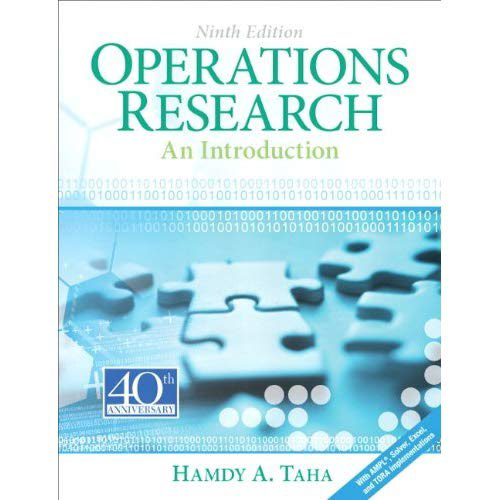Introduction:
In the dynamic and complex world of business, effective decision-making is crucial for success. Companies constantly face challenges related to resource allocation, production planning, inventory management, and supply chain optimization, among others. This is where Operation Research (OR) comes into play. OR is a multidisciplinary field that employs mathematical modeling, statistical analysis, and optimization techniques to aid in decision-making processes. In this article, we will explore the subject of Operation Research, its significance, and how it helps businesses make informed choices.
Understanding Operation Research:
Operation Research, also known as Operations Research, is a discipline that combines mathematical and analytical methods to improve decision-making. It aims to optimize the allocation of resources, maximize efficiency, minimize costs, and enhance overall performance. OR employs various techniques such as mathematical modeling, simulation, optimization, and statistical analysis to solve complex problems and provide actionable insights.
Applications of Operation Research in Business:
1. Resource Allocation: OR assists in allocating limited resources, such as labor, capital, and raw materials, optimally. It helps businesses determine the most efficient way to allocate resources to achieve maximum output or profitability.
2. Production Planning and Scheduling: OR models are employed to determine the optimal production levels, scheduling of operations, and sequencing of tasks. This ensures efficient utilization of resources, minimizes production costs, and reduces idle time.
3. Inventory Management: OR techniques aid in optimizing inventory levels by considering factors such as demand forecasting, lead time, and holding costs. By finding the right balance between excess and shortage, businesses can minimize costs while meeting customer demands.
4. Supply Chain Optimization: OR enables businesses to streamline their supply chain networks, including procurement, transportation, warehousing, and distribution. By optimizing these processes, companies can minimize costs, reduce delivery times, and improve overall efficiency.
5. Project Management: OR techniques are used to manage complex projects by determining optimal project schedules, resource allocation, and critical path analysis. This helps businesses complete projects within time and budget constraints.
Benefits of Operation Research:
1. Improved Decision-Making: OR provides quantitative insights that enable businesses to make informed decisions based on mathematical models and data analysis. It reduces reliance on intuition and guesswork, leading to more accurate and effective decision-making.
2. Cost Reduction: By optimizing various processes, OR helps in minimizing costs associated with resource allocation, production, inventory management, and supply chain operations. This can significantly improve a company's profitability.
3. Increased Efficiency: OR identifies bottlenecks, inefficiencies, and areas of improvement within business operations. By addressing these issues, businesses can enhance productivity, reduce waste, and streamline their processes.
4. Competitive Advantage: By leveraging OR techniques, companies can gain a competitive edge by making better-informed decisions and optimizing their operations. This can lead to improved customer satisfaction, increased market share, and sustainable growth.
Conclusion:
Operation Research plays a pivotal role in enabling businesses to make informed decisions and optimize their operations. By leveraging mathematical models, statistical analysis, and optimization techniques, companies can achieve cost reduction, increased efficiency, and competitive advantage. With the complexity and uncertainty in today's business environment, OR is becoming increasingly relevant and valuable. As technology continues to advance, the application of OR will likely expand further, empowering businesses to navigate challenges and achieve their objectives with greater precision and efficiency.
-min.png)





